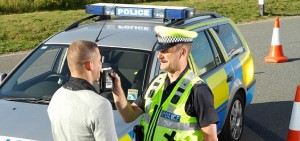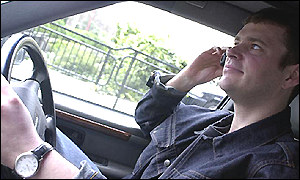Top Ten Most Prosecuted Motoring Offences
General Practice Solicitors who deal with multiple areas of criminal law won’t always know the ideal legal arguments that can be used to defend your case if you have been accused of any of the motoring offences below;
Failure to name the driver
A section 172 request will be sent to the registered keeper of the vehicle if you commit a driving offence.
If you do not complete and return the form you will be liable for six penalty points.
The statutory defences in the RTA are Section172(4) and S172(7)(b) Road Traffic Act 1988.
To satisfy the court, you need to show that you used reasonable diligence to determine the driver at the time of the offence, or that you haven’t received the section 172 info request.
No Insurance Offences
The circumstances or your reasons for driving without valid motor insurance are not taken into account when you are stopped on the road, and you are presumed guilty of the offence.
You will receive 6 – 8 penalty points on your driving licence if convicted or if you plead guilty to the offence.
Often, a motorist’s car insurance will have been cancelled without them being aware of it.
If you can show you honestly believed you had valid insurance, you have a Special Reasons Argument.
Speed Related Motoring offences
Speeding carries a discretionary ban, three to six points on your licence and a fine as well as incurred court costs.
Professional evidence is required if you are going to succeed in defending your alleged speeding offence in court.
Drink Driving Offences
The legal UK drinking and driving breath reading limit is 35mg. If convicted, you face a mandatory minimum driving ban of 12 months.
You have a legal defence if you can show that you either weren’t the driver, weren’t driving on a public road or place, or that you didn’t consume the alcohol until after you had driven.
If you had some alcohol without realising it at the time you also have a possible defence and may avoid a disqualification, as is the case with certain genuine emergency situations and driving for very limited distances.
Drunk in Charge
In order for the prosecution to get a conviction for drunk in charge of a vehicle, they will need to demonstrate that you were above the legal drink drive limit and that you were in charge of the vehicle.
If you can demonstrate to the court that you didn’t intend to drive again until you were below the legal drink drive limit then you have a defence.
If you are proven guilty of this offence, you will receive a mandatory either 10 penalty points and a possible driving ban.
Mobile Phone Driving Offences
To be found guilty of using a phone whilst driving, you need to be holding the mobile and using it whilst driving.
Courts view phone use while driving differently.
Stopping in a traffic jam, roadworks or at traffic lights is still classed as driving, and it is still an offence to use a handheld mobile.
Due Care & Attention Motoring Offences
It is a requirement that to convict you of driving without due care, the prosecution need to prove beyond all reasonable doubt that at the time in question, the level of your driving fell below that expected from a careful & competent driver.
Offences covered include undertaking on motorways and low speed scrapes and scratches.
For this offence, the police have the discretion to offer you a Driver Improvement Course instead of going to court.
Fail to Report
S 170 Road Traffic Act states that anyone involved in an accident is under a legal duty to stop and provide your details if damage has been caused to either; another vehicle, a person or to property.
From the time of your accident you have twenty four hours to report it to the police if you were unable to exchange at the scene of the accident.
You will receive five – ten points on your driving licence or a discretionary driving licence ban if convicted of this offence.
It is possible to legally defend this allegation if you weren’t aware that you had caused damage and can show that it would be reasonable for you not to know that you had been involved in an accident.
These are very serious driving offences and carry the risk of community service or even custody in the most serious examples.
Dangerous Driving Related Offences
It is up to the prosecution to prove in court that at the time of the offence, the quality of your driving fell well below the standard required. They also need to demonstrate that it should be obvious to a competent driver that your driving was deemed dangerous.
Magistrates take dangerous driving offences very seriously, and as such, the punishments are commensurate with their views. As such, if convicted you face a minimum 12 month ban, which automatically includes a complete driving licence re-test before you are allowed back on the road, as well as a potential prison sentence if your case is deemed to deserve it.
No Licence Offences
This offence causes confusion.
If you were driving on the road without displaying L plates or had never passed a driving test, then you would be guilty and the offence would be endorsable.
Should the DVLA request that you return your current licence to them and they suspend your entitlement, this would be non-endorsable.
No licence offences are often linked to having no insurance offences, where it is often suggested that having no licence means that your insurance is invalid. This is not the case.
This road traffic offence is often misunderstood by the police and Magistrates Courts, who often aren’t certain whether the offence carries driving licence penalty points or not.
Motoring Law
Modern UK motor law is complex but there are (in many instances) opportunities to defend most road traffic offences if you know what you are doing. The law is relatively clear cut, but that doesn’t mean all is lost.
Ask reputable motoring solicitors Patterson Law for advice and you will find out free if you have a potential defence for your allegation.

